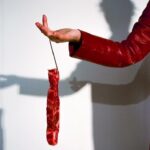Chris Gethard Discusses DIY, Bringing Punk Rock Ethos To TV, and His New Book
Posted: by admin
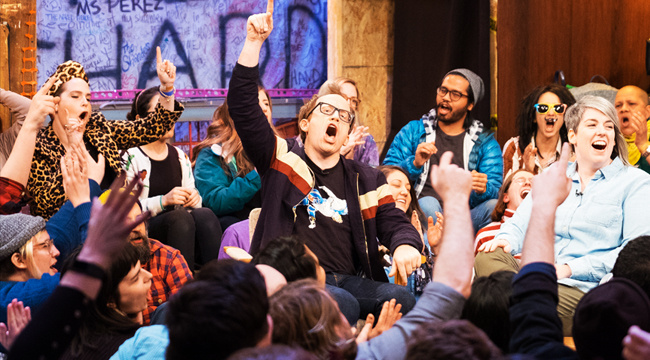
You’re probably wondering why an interview with comedian Chris Gethard is appearing on a DIY punk site like the one you’re currently viewing. It’s understandable trepidation, but Gethard is actually a huge inspiration for many members of The Alternative staff. As Henderson has tweeted many times before. The Alternative would not exist without Chris Gethard, and we’re not alone, many within the music world love Chris’s work.
At surface level, there doesn’t seem to be much overlap. But the reason is simple: Gethard’s approach to his comedy career has been absolutely punk rock, finding ways around all the doors slammed in his face in pursuit of a professional venture in making people laugh. The Chris Gethard Show — which lasted nearly ten years in various incarnations across public access and cable before being canceled by truTV earlier this summer — pushed the boundaries of what was considered “acceptable” television right up until the credits rolled on its very last episode.
In the late 2000s, when Gethard and his team of misfits moved the show’s makeshift set from the grocery store basement that housed the Upright Citizens Brigade Theatre uptown to the Manhattan’s public access studio, many comedy fans that attended the live show didn’t follow. For some reason, the show that had been such a success at UCB wasn’t clicking. Then there was a shift: suddenly, it was music fans that were coming to the show and making its creators feel like this new stage of what they were doing was still valid and cool. It was the show’s punk rock roots that brought people out of that grocery store basement and into the broadcast studio; the punks helped the show survive.
Gethard’s new book Lose Well has come to me at the perfect time in my life. I’ve just graduated college, and I’ve always wanted to pursue being professionally creative, but have recently felt the weight of a lack of confidence combined with the omnipresent pressure to leave such a volatile path behind for a more “productive” and “lucrative” career. The first few pages of Lose Well served as a beautiful breath of fresh air, a realization that maybe this inescapable sense of liminality is just a part of the puzzle, a rung in the ladder toward an ultimate result of which to be proud. The book espouses a message of confidence, encouraging readers to push forward through the wave of self-doubt and to take moments of failure in stride, turning those moments into lessons in a pathway built toward your goal.
When Gethard and I met up at the Olive Tree Cafe in Manhattan just before he took the stage for set at the esteemed Comedy Cellar, he (perhaps unknowingly) coached me through my post-graduate confusion, urging me to “harness all the chaos and use it toward some good rather than just get the shit kicked out of you.” An edited version of our conversation is below.
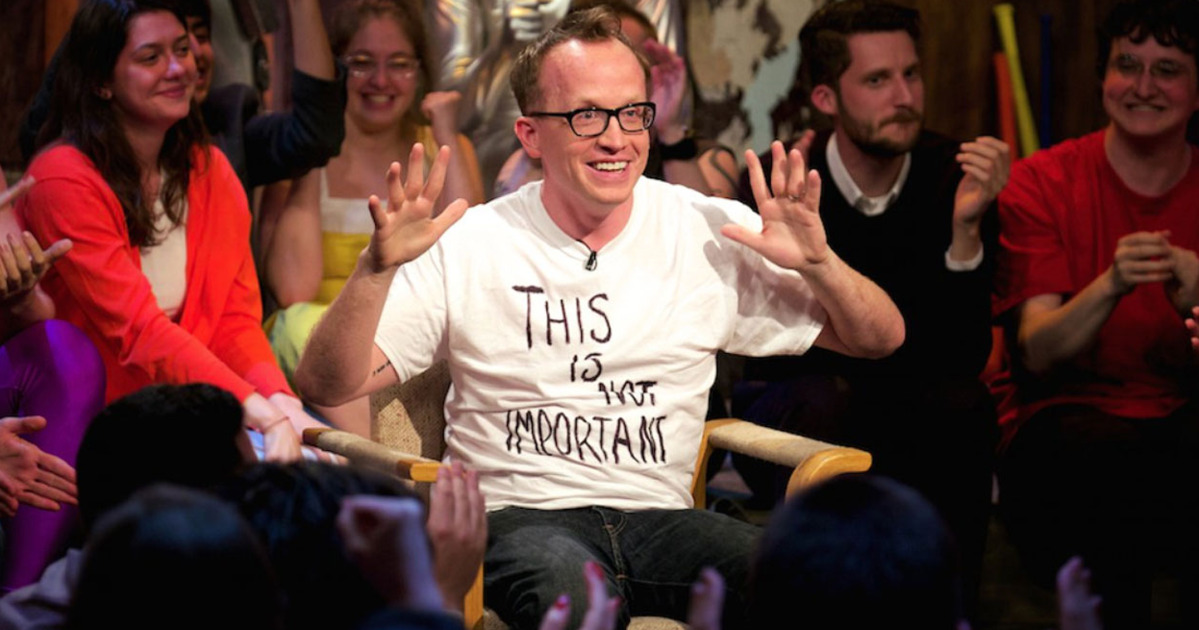
Zac: So I graduated from college and very quickly quit my job and started writing a screenplay.
Chris: You really are in the mental space for this book. You weren’t lying.
What do you think is the best way to, as you say, “harness that chaotic energy and not get the shit kicked out of you?”
I think it’s coming to accept the fact that, if you are a person who is driven in any way to do something, failure and shame and embarrassment are all just big pieces of the puzzle. Rather than waste all your time trying to dodge them, if you run head first into them, you’ll learn how to overcome them a little quicker, you’ll learn how to thicken your skin so they don’t stop you in your tracks. I kind of feel like, with failure, you gotta head into the deep end of the pool. You can’t dip your toe in and be like, “The water’s too cold.” You gotta get your head under, then all of a sudden, it warms up.
You have a whole chapter in the book called “Punk” and that speaks a lot about the community of punk rock and what that did for you when you were growing up. Do you view the punk community as a hyper-positive thing?
In many ways. It certainly has dark sides. I grew up in an era where you’d go to punk shows and you’d also have to be careful and keep an eye out for Nazi skinheads and ultra straightedge hardcore people who, inexplicably, would also beat the shit out of you. I think that more recent “DIY” label of punk is by-and-large an extremely positive thing that I think takes the best of the punk I knew growing up and really pushes it to the forefront.
What bands do you think exemplify that best?
I certainly think that Jeff Rosenstock is someone. He’s just really done it the right way. I think he has really good priorities, and there’s been more than one time in my professional life where I’ve actually called him for advice about how to do something the right way. Especially switching my show from something that was extremely underground to, all of a sudden, it was on cable. There were just a few things in converting my TV show to a job where I did not feel right about how it was happening. So I wound up having some lengthy phone calls with good ole Jeff Rosenstock, who gave me a lot of great advice about how to move into something that was clearly a more commercial venture, while also holding my head up high and being proud of it.
It was a tough thing, because I want to live in a world where it’s always this underground, joyous, collective of artists and freaks like The Chris Gethard Show was. At the same time, to create something and get it to a point where 70 people have a full-time job on it, that’s something to be proud of as well. But you have to make some compromises.
I’m really glad that Swearin’ got back together. They were always a band that I thought was doing things the right way. There’s so many.
What was the last show that you went to?
In the same week, I saw Paul Simon’s final show at Madison Square Garden, and then I saw David Byrne at the Kings Theatre in Brooklyn. Afterwards, my wife and I were talking and we were both like, “Man, that show was so good and so inventive and so cool that it makes me feel like everything I’ve ever tried to create is just a big pile of worthless dogshit.”
I haven’t been to as many smaller scale or local shows, partly just because I’m getting old, and partly because sadly all the venues I used to go to have been shut down. It’s just a little tough in New York right now to find out where the cool shit is.
I grew up in the suburbs wanting to go to all those legendary DIY spaces in New York City, but then I left for school and when came back, they were all gone. There’s nothing left.
That sucks. Yeah, it was really nice for me, because I was doing the Gethard Show, and I dove so hard into comedy after college that I lost touch with the music scene. I would still listen to a lot of punk, but it wasn’t the ground-level local stuff. And doing the Gethard Show, it was really important to me to have bands on, because I think a lot of my favorite late-night moments revolve around music.
It’s not Carpool Karaoke?
Oh god… Don’t get me started. If you don’t have anything nice to say…
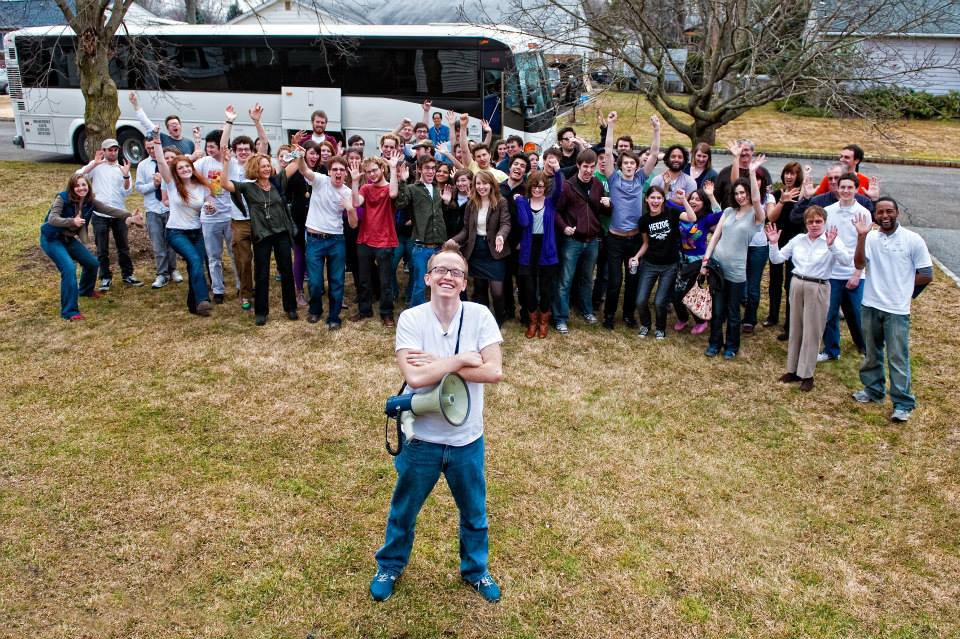
You write about the importance of giving kids a chance on The Chris Gethard Show. Why do you think that’s so important?
Well, one of the main things that I said in that punk chapter was, that first band that I ever saw, a band called Missing Children, and they were from New Jersey. I saw them in a church basement, and that’s the first time I ever saw live music. I was 13 or 14 years old, and I remember looking at them and being like, “They’re just kids and they’re playing music.” That’s mind-blowing when you’re young! When I was 13 or 14 years old, I figured the only thing you could do onstage was, like, the middle school musical.
My whole career took this turn in 2010, when I acted in a sitcom, and after that, I just really re-examined my priorities in a massive way. I really made it a priority from that point forward of trying to make as much of my work as possible have that same feeling of, like, if you’ve ever wanted to get on stage and tell a joke, this is stuff that will make you feel like it’s not so far away. My favorite art has always felt like it’s not that far away. So that’s the kind of art that I decided to make, once I got over my own ego and got out of my own way.
Do you think that you succeeded in doing that?
I think! There’s a lot of stuff that I stand by, that really has. I write about it in the book: one the things I’m most proud of is that there’s so many people who started out watching the show, who wound up working on the show. A lot of them hung out long enough that they got jobs through the show.
As far as creating something accessible, I’ll say that there were certain ways that my show succeeded, certain ways that my show failed, and I didn’t always manage to keep all the balls in the air, as far as DIY integrity, but in that sense of making it a thing that was accessible that people could be a part of? I think we really did a pretty admirable job.
I came to the show when it was on cable and John Mulaney was the guest. I sat right at your feet.
That’s awesome. Even that I always love: our show was celebrities sit here in some beat-up chair, kids are on the ground in front and behind them. It doesn’t feel like this separate thing. I always viewed [The Chris Gethard Show], and my role on it, as the thing that drags the celebrity down into the world where all the kids are on the floor. Not vice versa. That was always my mentality.
What does a regular person bring to the table that a celebrity doesn’t?
I think regular people just have a lot to offer, and I think we underestimate them. If I’m being honest, there’s certain comedy shows I watch where the whole thing has the vibe of a curtain call of a high school musical. Everyone like, “Yay, you’re so great,” “No, yay, you’re so great! We did it!” It’s like, fine, I guess. It’s just not as interesting to me as… Just passing this dude on the sidewalk right now, what’s your deal? I think I’m more interested in figuring out who the different people are on the F train than I am watching some show where I know that everyone is cheering because there’s an applause sign.
Now that the Gethard Show is over, are you working on anything new?
Not totally. This is, by far, the least safety net I’ve given myself in about ten years. Part of me is terrified by that, part of me is also so excited. I think my 20s were all about learning how to do what I wanted to do. I’m 38 now, and if I look at what I’ve done in my 30s, I think I had a lot of shit that I wanted to prove and I think it was about going out to prove it. I think I’d like to make my 40s about taking some of the comics who are younger than me who I think are really great, who should be doing their own thing, seeing if I can help get them to a place where they’re able to do that. I know I’ll never make an Emmy speech, but maybe one day someone will thank me in theirs. And that’s almost better.
I always say: If you look at the people who were in the Gethard Show writer’s room, so many of them are already getting sucked into bigger things. That’s not a coincidence. I know who the hard-working, great people are, and I want to help them. Again, all goes back to punk rock, right? If you see some band playing in front of eight people, but they kill it, and you have an opportunity to put them up in front of 300 people, that’s part of the ethos, I think: help the people who are good and hard-working and encourage them. I want to figure out how to do that with comedy. It’s easier said than done, because there’s 8 million gatekeepers in the world of television. But maybe, by some miracle, I can kick down some doors and do my part.
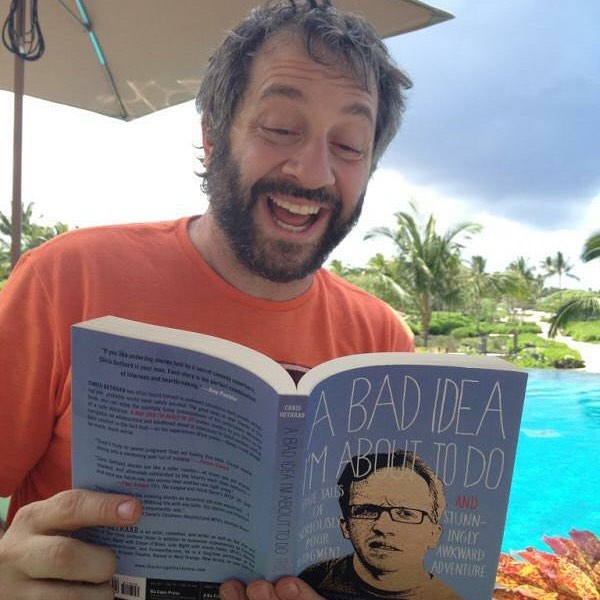
As someone who’s currently in search of any sort of job, the thing that’s frustrating to me is that there are all jobs that I know I could do, it’s just a matter of someone taking a chance on a kid with little to no experience.
I remember being in that position personally. Like, I’m willing to eat shit, just give me an opportunity to eat shit. I’ll get my hands dirty, what do I have to do? I write about it in the book that there was a magazine that hired me called Weird NJ, and they were the ones who gave me that shot. I’d have to drive a van around New Jersey and drop off a lot of boxes and put a lot of names in a mailing list. But if I did all that shit, they also let me write and they let me be creative. I managed to find some mentors that did that for me. It was a game-changer.
What are your words of wisdom for someone my age trying to make a living from punk rock?
The first thing I would say is stay hydrated. It’s very important. Drink a lot of water. We underestimate it.
I would say stay the course, which is pretty obvious advice. I would say there’s going to be some soul-sucking jobs that you just have to do to survive. Just do em and learn from em. I would say find the people that are doing stuff you admire and find ways to be around them. Find the environments where people are creating cool shit that you respect and show up at those places. Shake those people’s hands. Let them know eye-to-eye that you like them and you’d love to be a part of it. Just don’t be shy about letting people know that you respect what they do, because that’s always a fantastic first step toward getting your foot in the door.
As far as making a living in a punk rock fashion, I think you should give it an honest effort to get in on what these people have built. But if the problem is that the infrastructure is a bunch of closed doors, at some point, you gotta go find the other like-minded people who are being shut out of those situations and build something that serves as a big “fuck you” to the existing thing.
At some point, everybody will look at all the fuckin crusty old fuckers who don’t want to give the young people a chance, and say, “Well now you guys are fuckin toast because you refused to evolve. I guess we gotta come in and take the crown.” That’s the way it always kind of goes, right? Either the old crusty people adapt, or they have to go away. Those are the only two options.
Your book is about embracing failure. Do you think that your career has been a success?
It’s a great question. I walk this line where it’s like, I wrote a book about losing, but a lot of people have seen me on TV, or listen to this podcast. I want to be very careful with it, because I don’t want to keep leaning into this stuff as if it’s a shtick. I’m not exactly a loser anymore.
I still get mad about some stuff. I still have a chip on my shoulder; the punk rock part of me still comes to life. When Career Suicide was on HBO produced by Judd Apatow and speaking to something that was a social issue, and that didn’t get nominated for an Emmy? They’re never going to let me in the fucking club.
But I certainly feel that everything good in my life happened because I found ways to direct all those feelings in a positive way. So, over and over again, when the cool kids’ club slams its door in my face, I always kind of nod my head. It makes me lick my chops because I’m like, “This is when I’m at my best.” I hope that fire never totally goes out. I crave it.
***
Pretty much every episode of The Chris Gethard Show (public access version and cable version) is available for free online. If you’re only going to watch 1, may I suggest the classic ‘Guess What’s In The Dumpster’ episode.
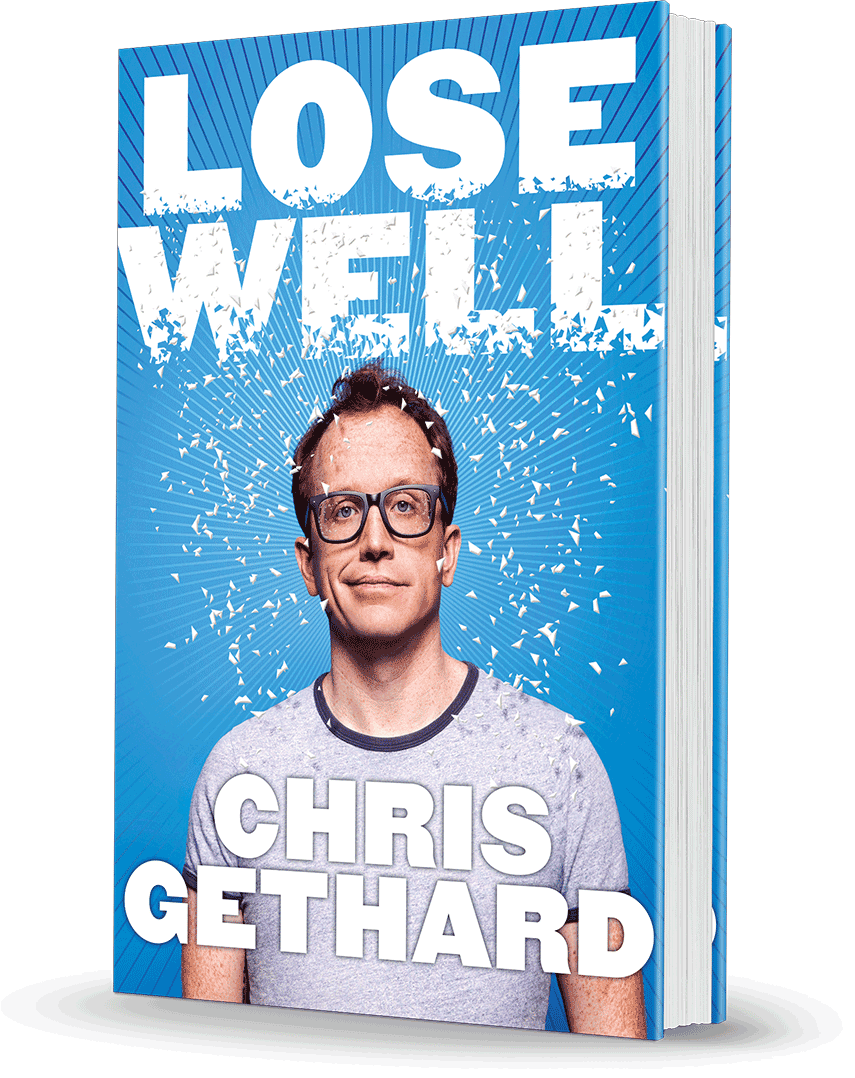
Lose Well is out now. Order it here and catch Chris on tour with his latest stand-up material this Fall.
***
Chris also has a podcast! It’s called Beautiful Anonymous and its just Chris having interesting chats with random people about their lives. Take a listen on your podcast apps!
_
Zac Gelfand | @gac_zelfand
The Alternative is ad-free and 100% supported by our readers. If you’d like to help us produce more content and promote more great new music, please consider donating to our Patreon page, which also allows you to receive sweet perks like free albums and The Alternative merch.





